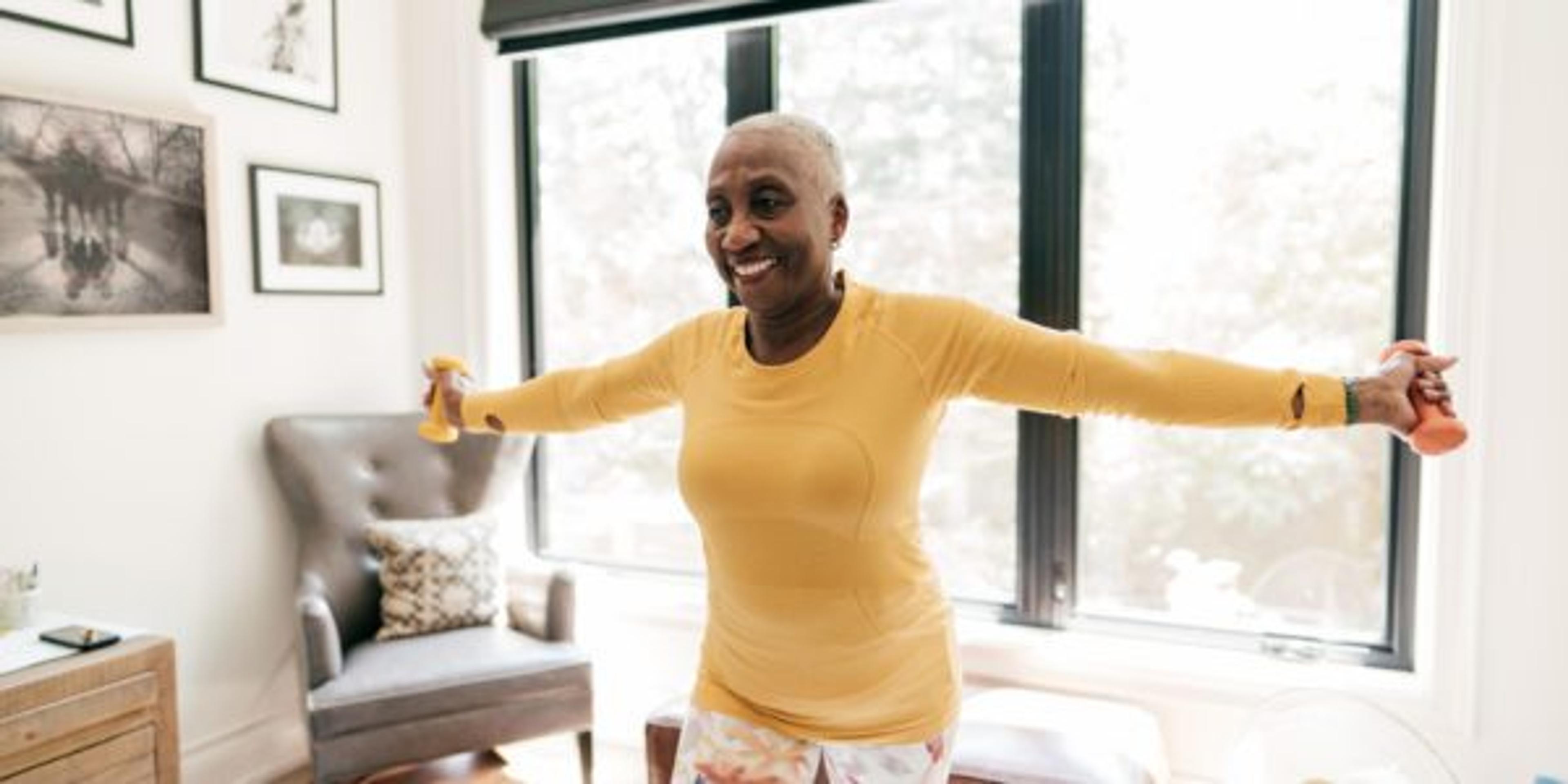Winter Self-Care Guide: Exercise
Amy Barczy
| 4 min read

It’s week three of our self-care journey on A Healthier Michigan. In the first two weeks, we tried meditation and journaling – both powerful practices that can help ground your mind, set your intentions for the day ahead and organize your activities. These practices can enable you to make space for another important act of self-care: exercise.
Daily exercise doesn’t mean you have to sweat through your clothes or spend an hour lifting weights. It also doesn’t mean you have to go on a diet.
Find intentional ways to move to raise your heart rate for 30 minutes a day of moderate physical activity. It doesn’t have to be 30 minutes all at once: it can be a 15-minute brisk walk in the morning, a five-minute stair climb at lunch and 10 minutes of yoga in the afternoon.
Exercise can help you fight off symptoms of anxiety and depression, and lower your risk for many chronic conditions. It’s also good for your gut health. Before starting any new exercise routine, talk to your primary care provider.
Though it’s winter here in Michigan, finding ways to move and get in exercise are more important than ever. Getting outside for exercise — safely in the cold weather –can help your physical and mental health.
A Healthier Michigan is here to help you as you try incorporating exercise into your life this winter. Here’s a sampling of what you’ll find at www.ahealthiermichigan.org/fitness, where there’s workout ideas and inspiration:
Walking
A daily walk can help lower your blood pressure, reduce your risk of chronic conditions, help you decrease body tension and boost your mood.
Swimming
Swimming is a great workout for your heart – without the high-impact of running or walking. In the pool, there’s less stress on the joints.
Pickleball
This sport is rising in popularity and is played on a smaller version of a tennis court with paddles and a plastic ball.
Yoga
Yoga can be done fast or slow – it’s up to you. This practice couples awareness of your body’s movement with your breathing and thoughts, and can be a form of meditation. It can help you become more flexible and relieve tight muscles.
Running
Not everyone is a runner – and that’s OK. But for those who run, they’re getting the benefit of building strong muscles, a workout for your heart, building strong bones and burning lots of calories.
Strength Training
Call it what you will – strength training, weight training or resistance training – but the method is the same: using weight to build muscle and improve fitness. This may mean using your body weight, free weights or a weight machine. This type of exercise is good for people of all ages and fitness levels, and can help people with chronic conditions.
Recovery
With exercise there is always a risk of injury – especially if you are trying something new. While injuries might seem annoying at first, make sure you take time to fully recover before resuming exercise.
Consider taking advantage of BCBSM’s discounted virtual classes through the Blue 365 program to fill the potential fitness void created by the cold.
Blue 365 members can snatch up discounted offers of up to 68% on personalized online health and wellness classes that focus on stress management and mindfulness, adaptive workouts, support for chronic conditions and more.
Virtual yoga group classes and virtual personal training sessions are also available at discounted rates for Blue 365 members looking to make the most of this winter from a fitness standpoint.
- Visit BCBSM’s BWell page to learn more about rewards you can reap by staying in shape and participating in wellness activities.
Each week during January and February 2022, we’ll be featuring a self-care technique to encourage you to try something new and make time for yourself this winter. Follow along on AHealthierMichigan.org.
Check out these other self-care guides:
Photo credit: Getty Images





